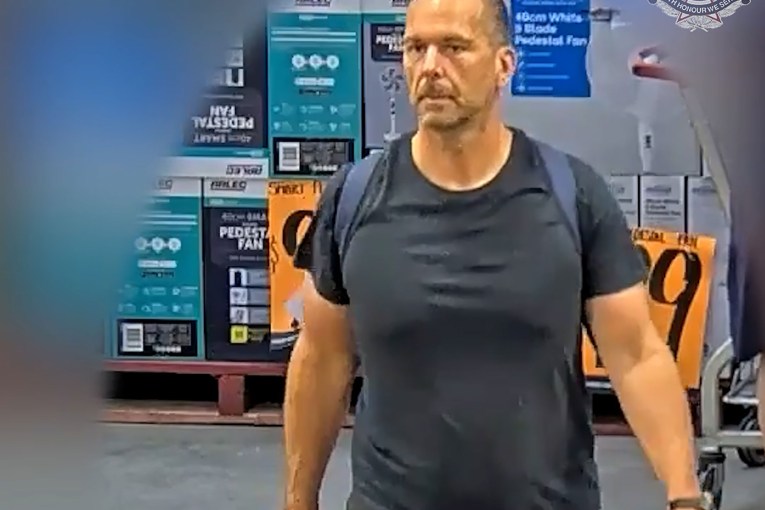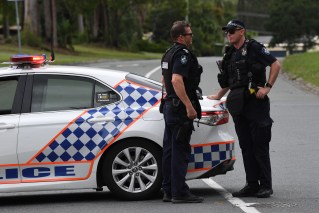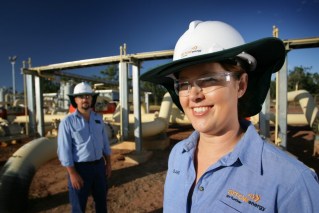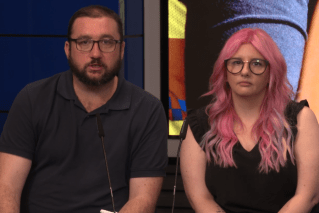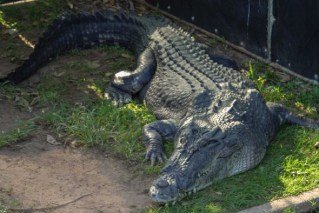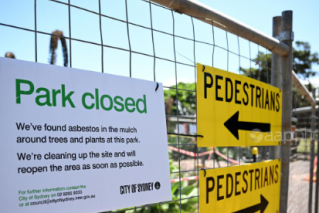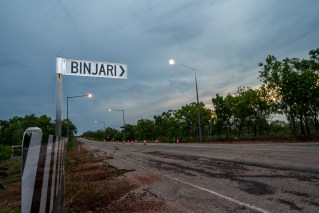Meet the ‘mouthy country girl’ out to shake up our rural health system
One of Queensland’s most isolated doctors will soon have the needs of all rural medicos and their patients under her wing.

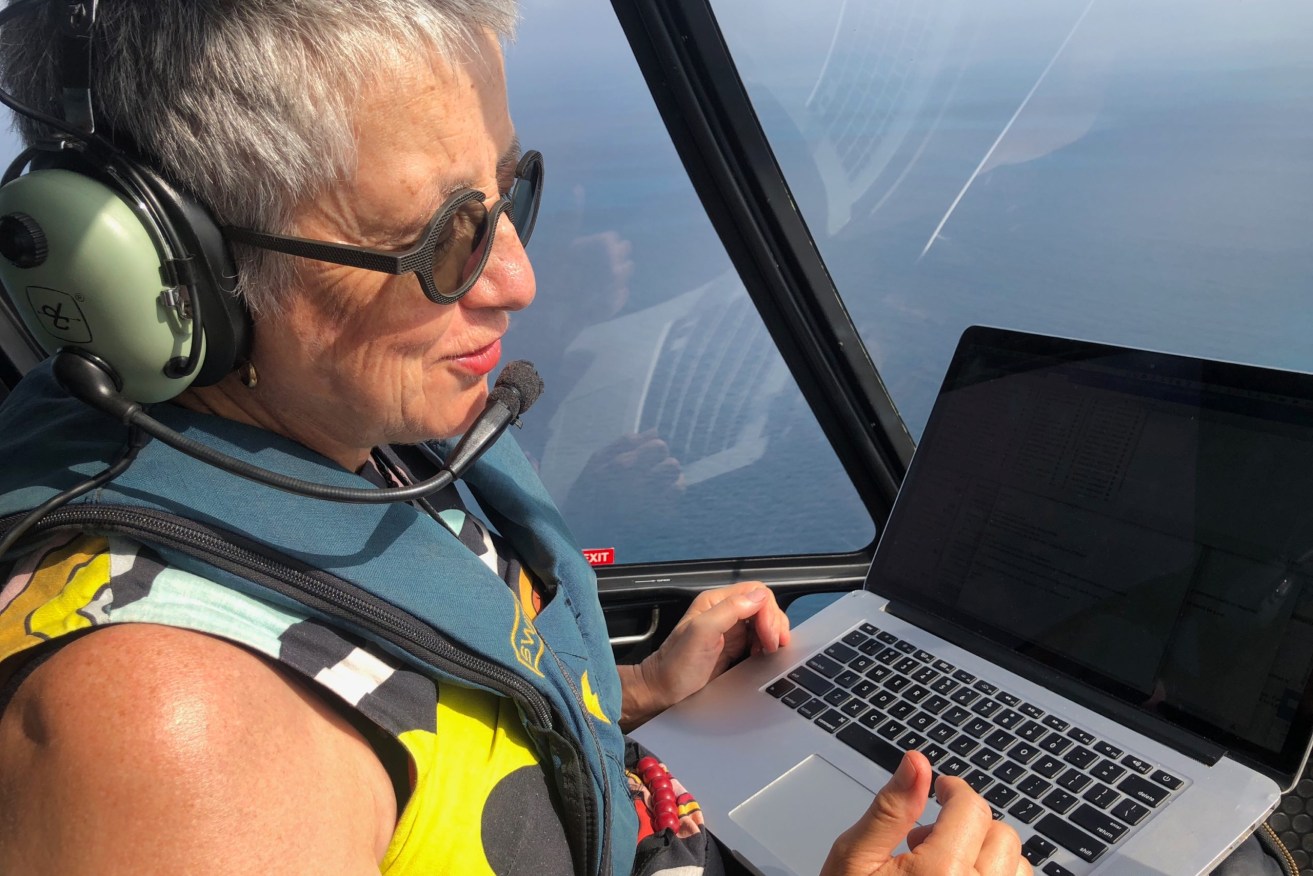
Professor Ruth Stewart delivers clinics via helicopter from her home at Thursday Island to Mer Island in the Torres Strait.
Professor Ruth Stewart starts work this week as Australia’s second Rural Health Commissioner, confident she’s been drafted into the role to “rattle cages and make some noise”.
The self-described “mouthy country girl” originally from rural Victoria, who as an undergraduate student at Melbourne University enjoyed debating and English literature more than her medical books, acknowledges she’s spent a lifetime preparing for the role.
Her career, she muses, probably started as an eight-year-old when the local doctor in her hometown of Tatura, two hours north of Melbourne, examined her for a stomach complaint.
“There he was prodding around saying that he was trying to find my liver. And I thought that was just the coolest thing I’d ever heard – that there were people like this who could actually see inside you,” she recalls.
Inspired by the prospect of achieving medical super-powers, the reality of growing up in a rural community in the ’60s and ’70s brought the young Stewart back to earth, the first of many battles she would need to wage in later years to hold her ground on her terms.
“Young women just didn’t become doctors in the 70s from places like Tatura,” Stewart says.
“When I told my class what I wanted to do my teacher asked me if I wanted my children to starve because the only female doctor she knew was never available to cook for her family.”
Support from home was also meagre for Stewart’s career aspirations. Her mother, a nurse, and father, a small-town lawyer, got her to boarding school in Melbourne, but from there she was on her own, waiting on tables four nights a week to pay the bills.
At university, she preferred to hang out with the Arts students, didn’t study all that hard and dropped out towards the end to work on a cattle station near Mt Garnet in north Queensland for two years.
After she scraped back in on the promise she wouldn’t be so “up myself” and would hit the books harder, she graduated in 1985, working in rural hospitals before moving to the UK for 12 months to further her training in obstetrics.
By this time, she was married to fellow doctor Tony Brown (who she insists on calling Anthony). Soon after arriving overseas they discovered their first baby was on the way.
“I remember sitting in a cold flat in Glasgow nursing the baby after another sleepless night. Anthony returned from doing a 48-hour shift. I handed him the baby and off I went to do my 48 hours at the hospital,” she recalls.
“It would have been so easy to give up and cry into my porridge but I just had to keep telling myself that this is what I wanted to do and I’d just have to do the hard yards to make it work. You have to fight for what you truly want – none of it comes easy.”
Thankfully Stewart proved her teacher in Tatura wrong, juggling a successful medical career and ultimately nourishing four children successfully into adulthood: eldest Hamish is a physicist in San Francisco, Duncan is a doctor in Mareeba in far north Queensland, Grace a professional cyclist and Australian time trial champion and Lachlan, who is studying mathematics at Melbourne University.
Island life
The Queensland chapter of Stewart’s story started in 2012, one year after finishing her PhD in medical governance, when she was offered the role of James Cook University’s Director of Rural Clinical School in Townsville.
She and Brown sold their GP clinic of 22 years in Camperdown, west of Geelong, to accommodate the relocation north.
“I have to pay enormous tribute to Anthony for selling our Camperdown clinic,” Stewart says.
“He did it because the JCU role was something I really wanted to do, but leaving our family, friends and community was such a wrench.
“Every day that we spent getting to leave was a bit like attending our own funeral.”
The eight years spent in Queensland has given new life to both their careers.
After starting in Mareeba, Brown progressed to Director of Medical Services for the Cairns Hinterland. These days he’s Executive Director of Medical Services for the Torres Strait and Cape York.
While living and working as a senior medical officer with obstetrics credentials on Thursday Island, Stewart has maintained a strong profile in rural medical advocacy and policy nationally, most recently as the former president of the Australian College of Rural and Remote Medicine.
Prior to COVID-19 travel restrictions, it meant countless hours on planes from one of the most remote places in the State, but also hours at home receiving treatment for lymphoma that was diagnosed in 2016.
“In fact, the day I was confirmed as ACRRM president was the same day I was sitting in my haematologist’s office receiving the news that my lymphoma had turned aggressive and that I would need to start chemotherapy immediately,” Stewart recalls.
“Boy, was that bad timing.”
Opportunity calls
Clear of the disease that threatened her life and free of her ACRRM responsibilities, Stewart says she was relaxing at home when she received a phone call from federal Health Minister Greg Hunt late last year to discuss her appointment.
“I saw ‘Greg Hunt’ come up on my phone and I thought he must have pocket-dialled me because there really was no need for the Health Minister to be speaking to me,” she says.

Ruth Stewart at the Rural Medicine Australia conference on the Gold Coast last October.
Since being formally announced by Hunt and Minister for Rural Health Mark Coulton on July 3, Stewart’s appointment to replace the founding Rural Health Commissioner Professor Paul Worley has been met with high praise, most notably from Queensland but also in her home state of Victoria.
Current ACRRM president, Dr Ewen McPhee, based in Emerald in central Queensland, said her appointment demonstrated the Government’s serious intent to improve the health of Australian rural and remote communities.
“We commend the ministers on selecting someone who is clearly passionate, informed and proactive, and we are confident they have chosen the best person for the job,” McPhee said.
As previously reported by InQueensland, McPhee and his colleagues over the past 30 years have played a key role in developing the rural generalist pathway, a model of clinical care that equips doctors to deliver a broad set of procedures, rather than a narrow field of specialisation.
The model has been critical in making Queensland a stand-out performer in rural health care, prompting Worley to advocate for the model’s expansion nationally during his inaugural term.
McPhee says Stewart will keep the implementation of the National Rural Generalist Pathway (NRGP) on track and ensure all rural and remote Australians have access to the healthcare they deserve.
“Her depth of knowledge, enthusiasm for women’s health, and her commitment to Aboriginal and Torres Strait affairs throughout her 30-year career in rural generalism ensures she will continue the excellent work Professor Worley has achieved to secure the future of the NRGP and takes it to the next step,” he said.
“There is still plenty to do to, and with her tenacity and drive I am confident it will get done.”
Big plans
When InQueensland met with Stewart last week at a near-empty Brisbane Airport, she was en route to Canberra to discuss the terms of her contract with Hunt and Coulton, who have already expanded the position’s remit to include two deputy commissioners to cover allied health, nursing and Indigenous health.
It was one of Worley’s big strategic plays to call out the massive workforce shortages in allied health – professions such as physiotherapy, pathology and nursing – experienced in rural Australia.
Experts such as Melbourne University’s Professor Lisa Bourke, who also chairs the Australian Rural Health Education Network (AHREN), says the allied health shortage has only deteriorated in recent years, despite Worley’s attempts to highlight the problem.
“Paul undertook two key projects during his time as Rural Health Commissioner along with extensive consultation, listening to rural and remote health professionals ‘on the ground’ and embedding a deep level of respect for, and inclusion of, First Nation Australians,” Bourke said.
“ARHEN was delighted that Paul raised the issues of workforce shortages in allied health across rural and remote Australia. These shortages have been well documented and recent experiences suggest these shortages have worsened during COVID-19.”
Bourke said she was delighted with Stewart’s appointment that will continue a seamless transition from the work already established by Worley, who hails from South Australia.
“She (Stewart) is experienced in rural, remote and Indigenous Health and also familiar with the benefits and challenges of rural training, and brings a wealth of connections and networks to the role,” Bourke said.
Stewart said the challenge in front of her was enormous, while acknowledging that there were many organisations involved in the same fight to improve the health outcomes of rural and remote Australians.
It was her job, she said, to achieve a unified position and make this heard at the highest levels, always with the health interests of rural and remote patients at the centre of their thinking.
“When you come from Queensland it’s easy to think the rural generalist model has fixed everything, but that’s not the case nationally,” she said.
“We still have far too many workforce shortages and, in fact, some states are still actively cutting back on staff and services – which is terribly problematic when the country is fighting a pandemic.
“I’ve always been outspoken, particularly on issues of injustice.
“I’ve lived and worked my whole life in rural Australia. They are my mob. I look out for them, and I’d like to think I’ll be a strong voice for them when policymakers are deciding what’s in their best health interests.”
